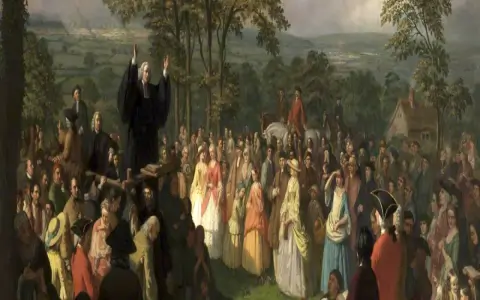So this whole enlightenment thing has been bugging me lately. Like, everybody talks about it sparking the American Revolution, right? But how? Seems kinda vague. I figured just reading textbooks wasn’t cutting it, so last Tuesday afternoon I decided to really dig in myself.
Started with the big names
Grabbed my dusty copy of John Locke first. You know, “life, liberty, property”? Flipped through pages like crazy, making notes everywhere with my crappy blue pen. Was looking for that exact connection point – how ideas jump from some philosopher’s head into the real world of angry colonists throwing tea into a harbor. Tough going at first. Felt like I was missing pieces.
Hit a wall
Got frustrated Thursday morning. Stuck on figuring out how Locke, Rousseau, Montesquieu actually reached ordinary folks over here. Was pacing around my living room, probably looking pretty weird. Textbook stuff felt too clean, too obvious. Real life ain’t like that. Needed to understand the mechanism. Thought about pamphlets, sermons, maybe tavern talk?

The accident and the lightbulb moment
Friday evening, everything stalled. My wife slipped on the wet kitchen floor carrying groceries. Took her to urgent care – thankfully just a bad sprain, but spent hours in that waiting room staring at scratchy posters. Felt useless and annoyed at first. Then, overheard two nurses arguing loudly about union policies and “rights” their manager was ignoring. Boom. It hit me.
- It’s not about the deep books by themselves.
- It’s how these big ideas got watered down, simplified.
- Spread through pamphlets written by folks like Thomas Paine.
- Preachers using them in fiery Sunday sermons.
- Local town meetings talking taxes AND “natural rights.”
- Suddenly Locke isn’t just words, it’s why your tax feels like theft.
Back to the grind
Saturday, dropped the heavy philosophy for a bit. Searched online archives for colonial newspapers and pamphlet reprints. Focused on stuff from like 1765 to 1775. Holy cow. Seeing words lifted straight from Locke and Montesquieu, but twisted into arguments against Stamp Act, against Quartering Act, against the King! They weren’t just quoting philosophers for fun. They were weaponizing the ideas to explain everyday unfairness. Made “taxation without representation” feel like a personal attack on their fundamental rights. Suddenly the Boston Tea Party wasn’t just about tea prices – it was a giant middle finger to a king denying their “consent,” straight from Enlightenment logic.
My Takeaway?
Enlightenment ideas weren’t the spark (like the taxes were the spark), they were the fuel. The dry kindling was already piled high with all those unfair laws. Philosophers gave the colonists the intellectual permission slip, the language, the “ah-HA!” moment to justify rebellion. They took “consent of the governed” and said “That’s us! And England ain’t got it!” Not some formal philosophy class, but a noisy, messy translation into revolution. Real trigger? Still stupid taxes and control. But enlightenment gave them the guts and the words to fight back hard. Makes way more sense now. Pretty weird huh, how a kitchen accident sorted my research?

